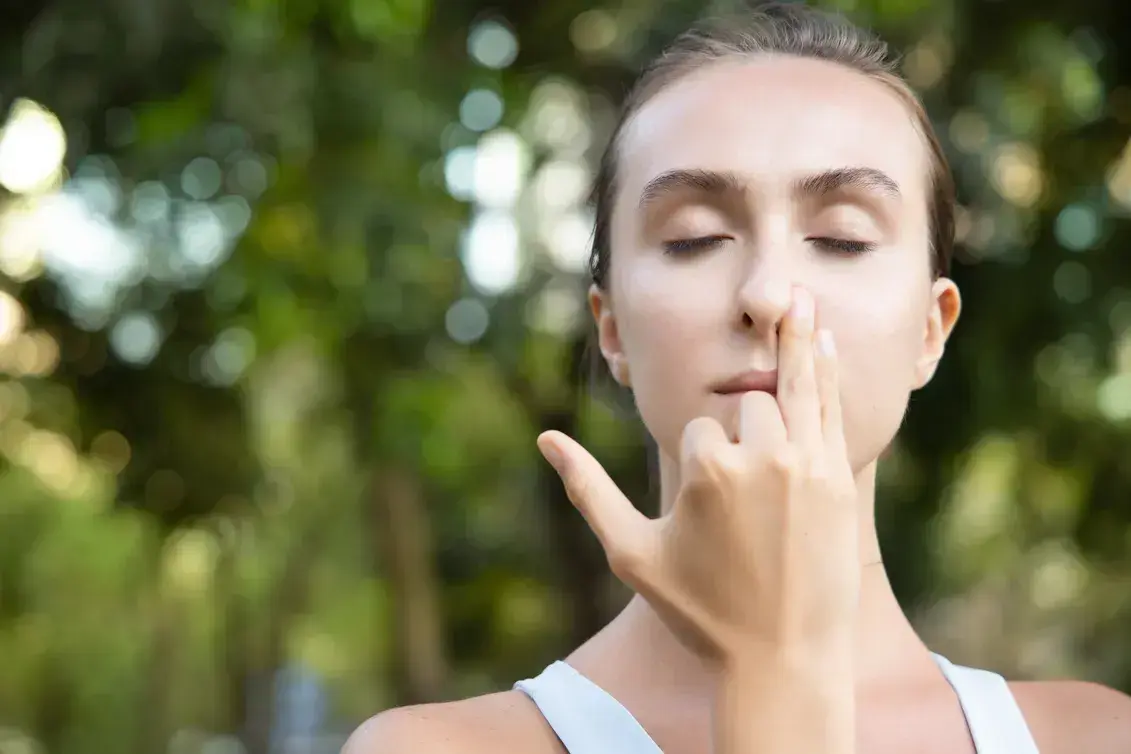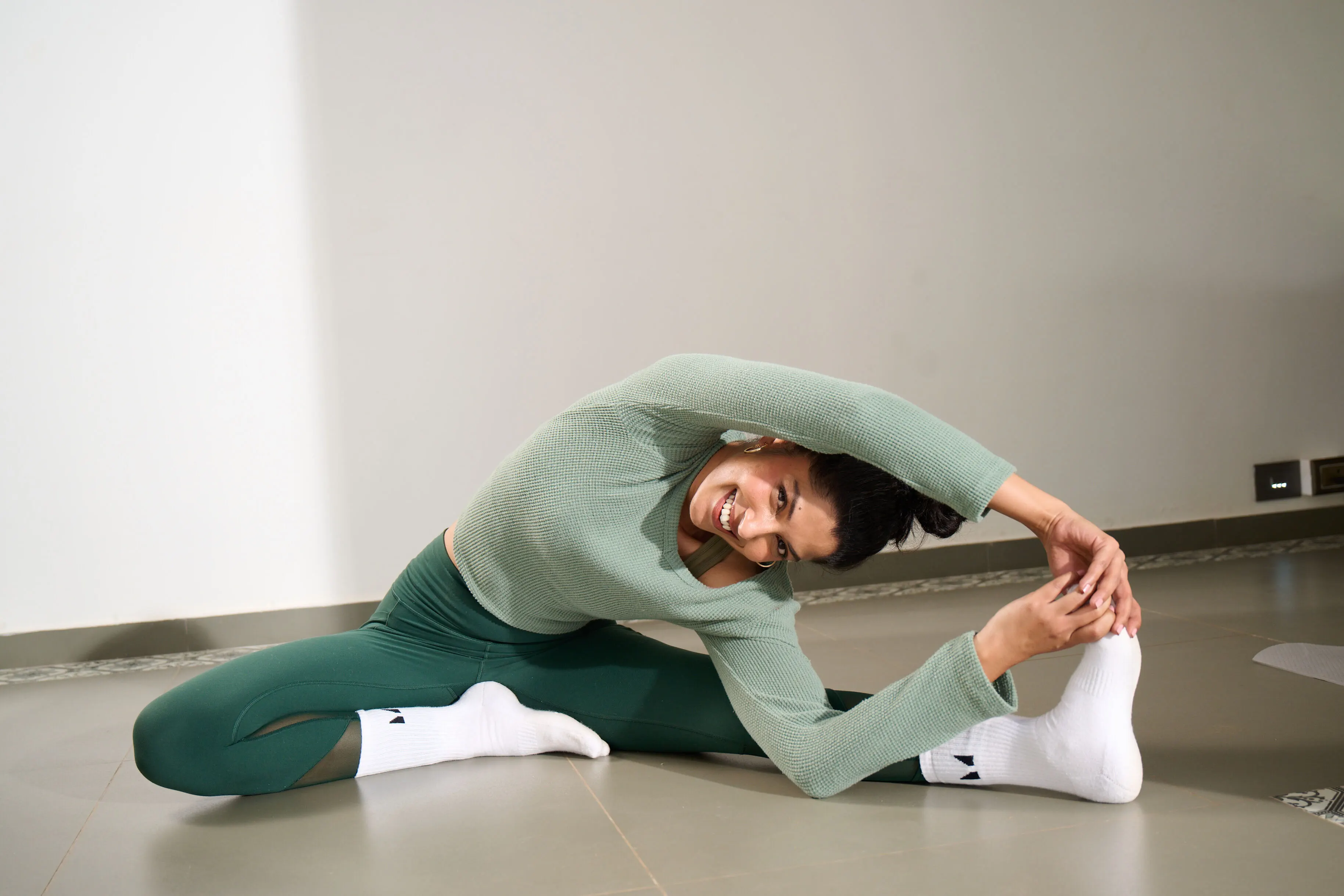Your mental health could be the defining factor for your physical and physiological health. In today’s modern day there are limitless factors affecting mental health with many of us succumbing to stress, anxiety, depression, among others.
Yoga, with its immense emphasis on breath, is one of the most effective ways to prevent, manage and even cure mental health conditions. Its impact on the nervous system and brain centers greatly helps let go of perceptions and impressions that are the root causes. So it’s hardly surprising when we say yoga brings mental benefits, such as reduced anxiety and depression.
There is a rise in the awareness of mental health issues and it is only increasing. Most doctors, therapists, psychologists and psychiatrists, advise preventive measures, non-medicated treatments and self-care be tried before resorting to medicines.
Common mental health issues
Mental health issues are not uncommon in people of all ages. For young children, teenagers and adolescents there are factors like peer pressure, performing in academics, sports and other activities, social media influence, parental pressure, etc. which make one vulnerable and susceptible to conditions like stress, anxiety and depression. Moms worry about children and the influence of these factors on their kids, leading to anxiety and depression in them.
Young professionals, managers, and CXOs bear the brunt of targets, angry bosses and toxic work environments. As we grow older insecurities and loneliness tend to set in, making depression common amongst the elderly.
Irrespective of age or phase in life, our worlds today are filled with desires, attachments and materialistic possessions. When we don’t get what we desire or we feel unfulfilled, our nervous system sends this message to the brain, activating the sympathetic nervous system and causing imbalances in hormones and in the overall body.
Benefits of yoga for mental health

Sometimes, all you need is a change in lifestyle. And, one of the most effective lifestyle changes you can make is taking up yoga. One hour on your mat with 10-20 minutes of meditation a day will itself make a big difference in your mind and body. Making a few dietary changes will also lead to improvements. Here are a few benefits of yoga for mental health.
Calms the mind
Yoga induces a sense of peace and calm within the mind and body. Many asanas will activate the rest and digest response and the parasympathetic nervous system. Breathwork balances the body, and helps release stress. Many such practices will help manage anxiety or panic attacks, and even help prevent it.
Improves focus
Many suffer from ADHD, or are unable to focus when faced with a stressful trigger. Yoga makes you more mindful and helps focus even during uncomfortable situations. It helps control how you react, preventing anxiety and panic attacks. Those with conditions like ADHD can relax and center the body better, improving focus.
A sharper mind
Harvard Medical School published an article on how when you do yoga, your brain cells develop new connections, and changes occur in brain structure as well as function. This improves cognitive skills like learning and memory. Yoga strengthens parts of the brain integral to memory, attention, awareness, thought, and language. Studies using MRI scans and other brain imaging technology have shown that people who regularly do yoga have a thicker cerebral cortex (the area of the brain responsible for information processing) and hippocampus (the area of the brain involved in learning and memory) compared with nonpractitioners. These areas of the brain typically shrink as you age, but the older yoga practitioners showed less shrinkage than those who didn’t do yoga.
Furthermore, research shows improvement in functions like reasoning, decision making, memory, learning, reaction time, and accuracy on tests of mental acuity in those who practice yoga and meditation.
Improves mood
Yoga releases healthy brain chemicals like endorphins and dopamine. This helps balance your mood and significantly improves conditions like depression. When mental peace and concentration is better, mood is better. In conditions like bipolar disorder where mood is in extremes, this is very effective.
Furthermore, yoga boosts your mood by lowering levels of stress hormones when endorphins are released. This improves oxygenated blood sent to your brain. Yoga can also affect mood by elevating levels of a brain chemical called gamma-aminobutyric acid (GABA), which is associated with better mood and decreased anxiety.
Meditation is known to reduce activity in the limbic system (the part of the brain dedicated to emotions). When emotional reactivity reduces, there is better control over response in stressful situations.
Better sleep quality
Yoga can improve sleep quality greatly. When one gets a more restful night’s sleep, hormones and all the systems are balanced. This is especially true for older adults. In one study of yoga participants over the age of 60, participants reported an increase in both the quality and quantity of their sleep. They also increased their sleep efficiency, improving mood, calmness, etc.
Yoga poses for mental health
The eagle pose (Garudasana)
This postre improves focus, balance and awareness. It requires you to breathe while holding your body in balance, on one leg. When awareness and focus is better, itt helps prevent anxiety attacks or reactions to stressful situations.

The dancer’s pose (Natrajasana)
Also a balancing posture, it improves focus and balance. It greatly improves mood and helps those fighting depression and anxiety.

The lotus pose (Padmasana)
A meditative posture, this asana induces a sense of peace and calmness in the mind. It greatly improves mood and helps keep anxiety and depression at bay.

Child’s pose (Balasana)
This posture stretches the entire back, relaxing the spinal nerves. It is a restorative posture which balances and calms the mind and body. It improves blood circulation to the brain and relieves stress and anxiety.
%20-min.jpg)
Legs up on the wall pose (Viparita Karani)
Also a restorative asana, posture allows lymphatic drainage, improves blood circulation and calms the mind. It is rejuvenating and helpful in anxiety, depression and insomnia.

Seated forward fold (Paschimottanasana)
This forward bend activates the parasympathetic nervous system and stimulates the vagus nerve. It balances the autonomic nervous system, is relaxing for the back and relieves stress and anxiety.

Breathwork for mental health
Oceans breathing (Ujjayi)
A very tranquilizing breathing exercise, this practice balances the body and mind, induces a sense of peace and calm, improves sleep quality, and improves awareness. It greatly helps manage stressful situations.
Alternate nostril breathing (Nadi Shodhana)
This breathing exercises balances the body and mind. It helps release toxins, tension and tightness from the system. It induces calmness and relieves stress.
Humming bee breathing (Brahmari)
This is one of the best breathing exercises for stress relief. The sound produced during the practice has a calming effect on the mind. It immediately provides relief from stress and anxiety.
Cleansing practices
Frontal Lobe Cleansing (Kapal Bhati)
This practice throws out excess carbon dioxide and infuses the body with oxygen. It improves blood circulation, removes toxins and blockages. It activates the ajna chakra (at the eyebrow center). It flushes out compulsive thinking from the pre-frontal cortex. This is helpful in releasing stress and tension from the mind.
Gazing steadily (Trataka)
The practice of steadily gazing at an object, like a candle, greatly helps to improve focus, forcing us to move the mind away from stressful or unpleasant thoughts. This practice cleanses the mind of negative thoughts and emotions.
Meditation and relaxation
Developing the practice of meditation and relaxation is extremely beneficial in managing, preventing and curing mental health issues. Yoga Nidra, a guided relaxation technique, works on the subconscious mind and helps remove perceptions and impressions from the mind. This has a great impact in removing triggers of anxiety or panic attacks, depression, etc.
Meditation, when practiced regularly, keeps the mind calm and focused. It improves our reaction to situations, keeps the nervous system balanced and keeps many conditions at bay.
Concluding Thoughts
If you are facing any mental health conditions, always consult your doctor or therapist. Begin a yoga practice with an experienced teacher who can guide you based on your condition. Your breath itself is a powerful tool to help you navigate these conditions, however, learning to control and use the breath in the right way is key. That’s where a yoga teacher will be able to help you immensely.















.jpg)












%201.png)

%201.svg)






%201.svg)